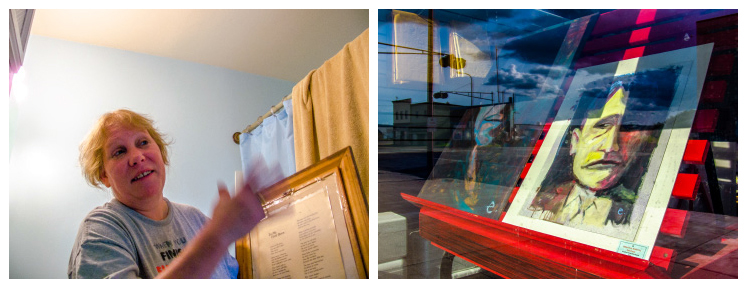
It is not unusual for opposing sides within a democracy to harden their stances on important issues, harden them to the extent of contempt for "those others" who refuse to see things their way. The result can be, and often is, institutional paralysis. Factories grind to a halt as workers strike in opposition to management demands. Schools close as teachers strike over inadequate funding and unreasonable policies. Community projects stop over legislative bodies failure to agree on financing. Public institutions and services, like veteran's hospitals, police, fire, and military preparedness meander, decay, and begin to falter as leadership fails to provide clear vision and adequate resources. Basic research slows as purposes fragment and too little money is split too many ways. There are many different ways to accomplish the same goals. But institutional paralysis invariably results from something more basic than disagreement over style. Divided opinion, more often than not, comes down to how much one side or the other will be required to personally sacrifice for the common good. In other words, work harder for less reward. Understandably, it is more difficult to swallow personal devaluation than to appreciate and acquiesce to improved wellbeing for all, especially if the specter of corruption has not been completely quashed. For, if it has not, personal sacrifice becomes nothing other than one person's gain at another's expense, something no rational person would knowingly and willingly agree to. Thus, no issue will avoid resulting paralysis if fairness for all is not transparently guaranteed. Ah, perhaps that works for what is now, but what of the future, you may say? What of transitioning to something completely new, like green energy? How can taxing carbon or subsidizing non-carbon alternatives ever be perceived as "fair" if the literal intent is to put whole industries out of business, namely coal, oil, natural gas, and ethanol? Or, how can investment in or legalization of weapons, military or otherwise, ever be perceived as "fair" if one is adamantly opposed to violence in any form? Or, how can reforming immigration policy ever be perceived as "fair" if those here now fear losing something to those who will come? No, the issue of fairness is at the heart of even those issues. The question must be asked: Will societal gain be greater than the personal sacrifice we all will be required to make? And, can the cost of corruption be eliminated or held to insignificance? What is not easily perceived as fair for everyone is not really fair for anyone. And, what is not fair will not be tolerated by any rational citizen of democracy or, for that matter, by any citizen within any state, democracy or not. Never has been. Never will be. So, looking for a way to end an impasse? Come up with a proposal that is corruption free and transparently fair for all. Want to impose an impasse, which apparently some people do? Stick to a proposal that is not transparently fair nor corruption free. Derision and disdain will undoubtedly rein, followed closely, no doubt, by work stoppages, demonizing insults, violence, and even war. Nothing really good for any of us. (The painting included at right above was on display in Superior Wi, is entitled White Shirt, White Tie, Red Cheek, and is by artist e.) |
• Posted: Aug 05, 2014 16:08:46
• Comments Welcome
• Vote CoolPhotoblogs
• Purchase a Print
• Share
Sunday, August 12th, 2012 Superior WI USA |